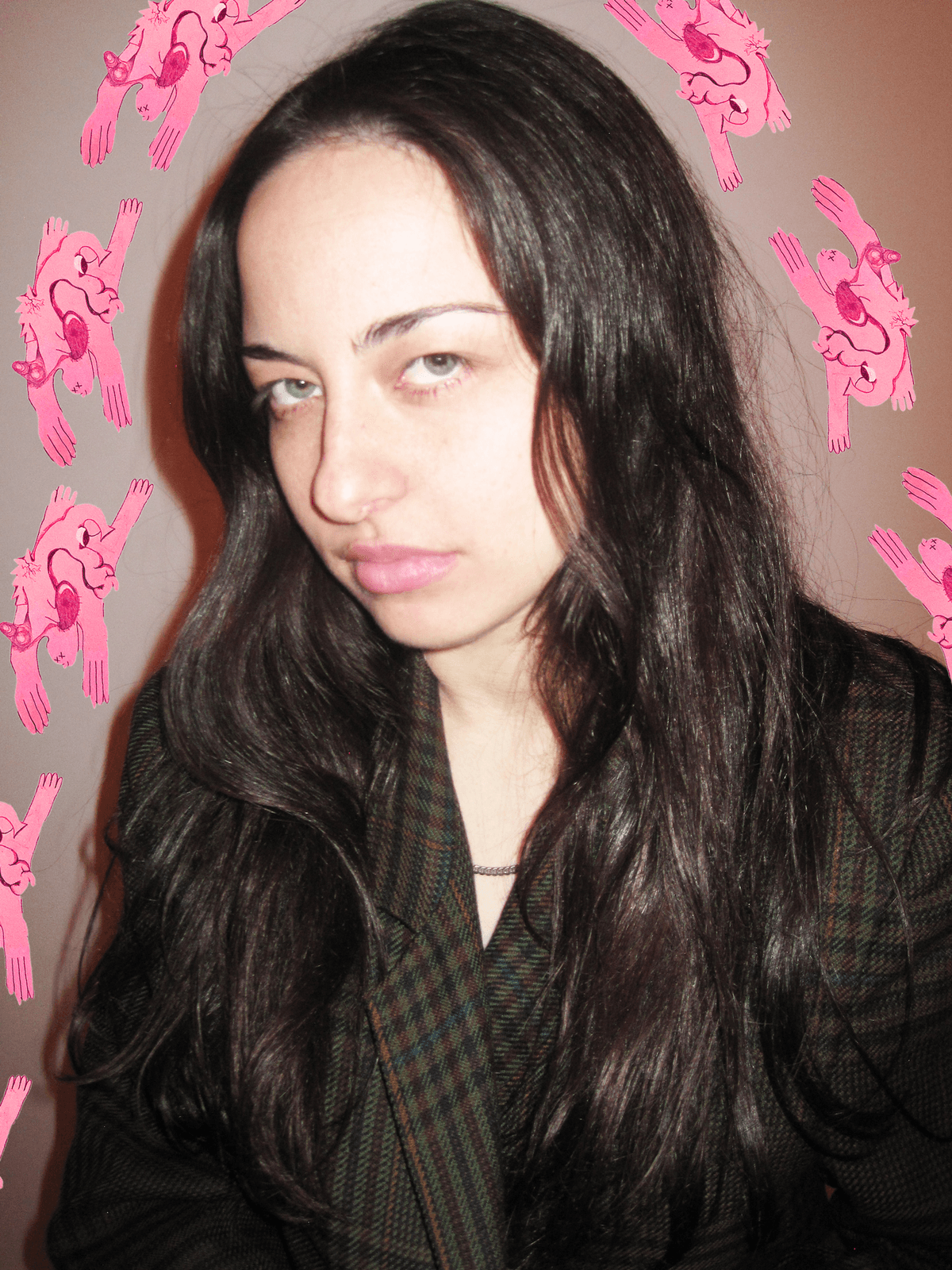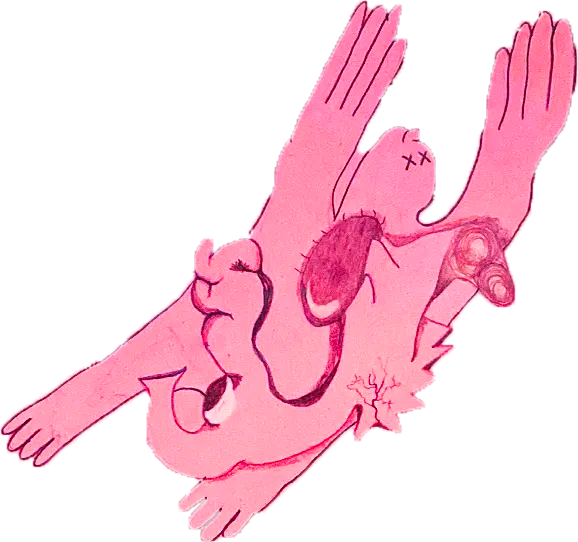THIS IMMACULATE STAGE
Willa Bennett

The fashion industry is constantly shifting and I feel lucky to be at a place like [Highsnobiety] where we can adapt and change with the culture, not against it.
Willa Bennett is a writer and the editor-in-chief of HighSnobiety magazine. She is a Forbes 30 Under 30 Honoree and a published author with two books of poetry released to date. Bennett sat down with editor-in-chief Tess Pollok to discuss her favorite designers, the urgent curiosity of fashion writing, and how poetry has shaped her life.
TESS POLLOK: I’m so happy you said yes to an interview. The Highsnobiety mission statement emphasizes that your platform is supportive of emerging creatives and independent voices; you mentioned being interested in that work and I wanted to start there. What makes you feel passionate about being a culture worker and fashion writer?
WILLA BENNETT: I’m inspired and excited by the next generation. It’s really beautiful to have a platform in fashion right now – and I’m always trying to figure out new ways to elevate emerging voices.
POLLOK: You’re known for your love of menswear. What are you wearing right now and who are your inspirations?
BENNETT: I’m wearing Bode right now. And Dries Van Noten is my absolute favorite right now. I don’t own too much of it but I’m just obsessed. It’s really great quality, always well-made, and the cuts are exquisite. You always know what to expect with them, I love their consistency as a brand. Commission is another one of my favorites. Again, quality, great cuts, well made. Martine Rose is another one of my absolute favorites. Wales Bonner, too, has always been a huge inspiration to me.
POLLOK: How did you move forward in your writing career? I’m thinking about how lots of young college graduates end up in these nebulous, borderless jobs that center on copywriting, brand management, and social media. You’ve done an amazing job of honing your voice and accomplishing something so tangible and specific with fashion writing.
BENNETT: I try to follow my curiosities. Fashion has always felt urgent to me, it’s never been just a job. Earlier in my career, when I was, like, handed the company Snapchat, or asked to do content creation on Instagram, I realized pretty quickly that I could actually reach a larger audience if I wasn’t so myopic about being a “writer.” This industry is constantly shifting and changing and I feel lucky to be at a place like Highsnobiety where we can adapt and change with the industry and not against it. We’re a really young and nimble team and we are reactive to our audience in an authentic way.
POLLOK: Speaking to your passions and curiosities as a writer, I saw on your website that you recently published two poetry collection, I think there are goose eggs in my belly and This Always Happens.
BENNETT: I donated the money to the Audre Lorde Project with the first one and the second went to the LGBTQ Center in the West Village. Writing poetry helped me reconsider my relationship to queerness so it felt right to give the money to those organizations. I have no idea if I’ll ever write another book, both of the projects felt very spontaneous and of the moment. And I felt so free putting something into the world that you can’t read, dissect, and analyze on the internet.
POLLOK: I love following spontaneous creative impulses. It’s so counterintuitive to what people imagine of careerist media types, like–I don’t know, I think people make assumptions that to be serious as a writer you have to be rigid, but it actually works better to be flexible with what you’re passionate about.
BENNETT: I always ask myself, you know, if Instagram went down tomorrow, what would Highsnobiety be? Where could our audience find us? I love the Highsnobiety app for that reason. I love our shop's content. I often think of our commerce as our subscription. Do you love Highsnobeity so much that you actually purchase our clothes? That feel so intimate to me. We are opening a store in March in Berlin. Having a relationship to social platforms is important but it’s equally important not to be dependent on them. It’s about building real communities.
POLLOK: I think what I find so fascinating about your job and your position is that it’s simultaneously very creative and free but you’re also doing a lot of work to build out this brand, and that’s very corporate work. There’s something so sinister but also so beautiful about being at the masthead of a project like this. How do you feel about that sort of work?
BENNETT: I’ve had roles where I’ve felt that way, but this isn’t one of them. I feel really close to my staff and connected to young people who are working at our offices around the world. It’s invigorating and energizing to be around the momentum that our community generates. There are obviously situations and meetings that are difficult, but I accept that comes with the territory but mostly I just feel ambitious and excited about what our team can accomplish.
POLLOK: I wanted to pivot a bit and talk specifically about menswear, which you’ve really championed in fashion, and your relationship to that. Were you a tomboy growing up? When did menswear happen for you?
BENNETT: I was a pretty serious ballet dancer growing up. The ballet world is obviously really hyper-feminine and I rebelled against having to play such a specific role in that environment. At the same time as I was getting more competitive with ballet, I was also coming into my queerness and starting to question and reject different parts of heterosexuality more. I think a lot of that internal struggle came out for me in this obsession with menswear. It started with men’s magazines, like, I was collecting GQ, Esquire, things like that. I couldn’t see myself in their world or their stories but they were endlessly fascinating to me and I think that was a big part of what enabled me to embrace difficult conversations around gender and sexuality.
POLLOK: I love that. I have a dark history as a figure skater, as well. I wear a lot of menswear, which I think people used to react to as, like, a schlubby look, but now it’s more acceptable. It’s become more acceptable over time, I would even describe it as a really popular look right now.
BENNETT: I completely agree, I think it’s such an interesting time to be a young person in fashion.
POLLOK: How does your fashion work figure into your other creative practices, like your writing?
BENNETT: Fashion and writing feel intimately connected to me and I approach the magazine from a real writer’s perspective. What are we saying and why? Who are we talking to? I’ll never forget Emily Bode’s debut womenswear show at Paris Fashion Week. She has a huge presence in menswear but this was her first time moving into women’s and I was really excited about it because she’s one of my favorite men’s designers. I think what she’s done in menswear is so admirable and she’s such a visionary. It was in this beautiful theater on this immaculate stage and everything was so beautiful and intentional, from the way the models were styled to the music choice to a member of her family walking out and introducing her. I remember tearing up about it after–it was so moving, almost like a book or a play, and it reminded me that all of this is an art form. We’re all trying to find meaning and we bring ourselves to the work… That’s where I see the connection and find my connection to my art and my inspiration.
← back to features
